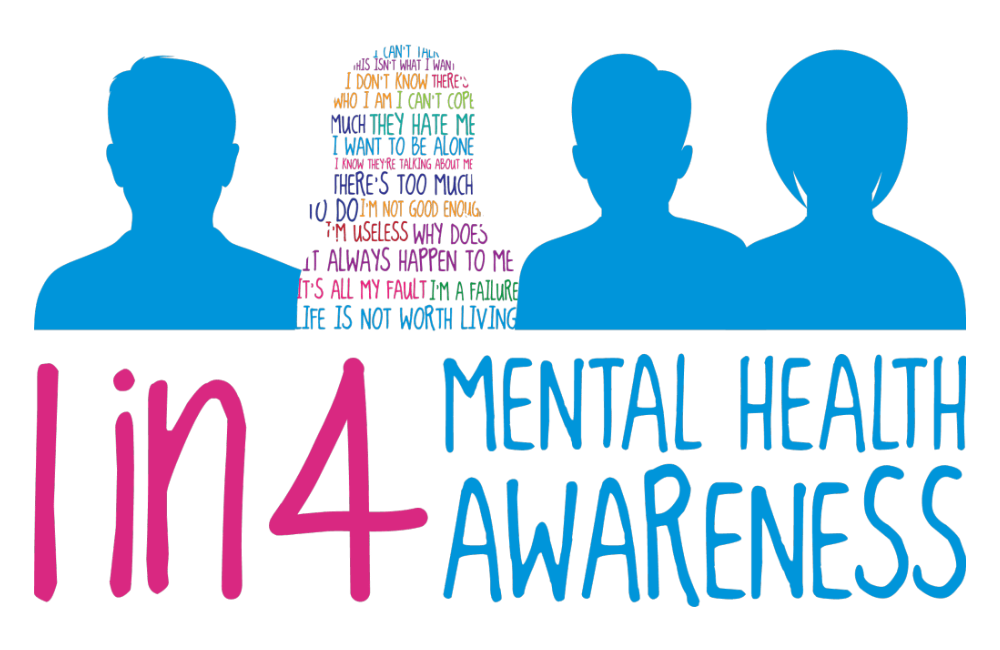In an ever-evolving world, the importance of mental health cannot be overstated. As we dive headfirst into the year 2023, it is crucial to take stock of the latest trends in the realm of mental well-being.
The past few years have brought about significant changes in how we perceive, prioritize, and manage our mental health. This article delves into the noteworthy mental health trends of 2023, highlighting key aspects that contribute to a holistic approach to well-being.

Definition
Mental health is a fundamental component of overall well-being, encompassing emotional, psychological, and social aspects of an individual’s life. It refers to a person’s ability to effectively manage stress, cope with challenges, maintain healthy relationships, make rational decisions, and achieve their full potential. In essence, mental health influences how people think, feel, and behave on a daily basis, ultimately impacting their quality of life.
Key Aspects of Mental Health
1. Emotional Well-being
Emotional health is the cornerstone of mental well-being. It involves recognizing, understanding, and managing a wide range of emotions, from joy and contentment to sadness and anger. Individuals with good emotional health can express their feelings constructively and adapt to emotional ups and downs.
2. Psychological Resilience
Mental health includes the capacity to bounce back from setbacks and adversity. Resilient individuals can navigate life’s challenges with a positive attitude, learning and growing from difficult experiences rather than being overwhelmed by them.
3. Social Relationships
Robust relationships are vital for emotional well-being. Resilient bonds with friends, family, and a supportive community offer emotional sustenance and alleviate feelings of solitude. Loneliness and social seclusion can detrimentally affect emotional well-being.

4. Effective Coping Strategies
Individuals with good mental health possess effective coping mechanisms to deal with stress and life’s demands. These strategies may include problem-solving, seeking social support, engaging in relaxation techniques, and self-care practices.
5. Self-awareness
Being in touch with one’s thoughts and feelings is essential for mental health. Self-awareness enables individuals to recognize when they need help, monitor their mental state, and take proactive steps to maintain or improve their mental well-being.
Common Issues Surrounding Mental Health

1. Mental Illness
Mental health issues can manifest as mental illnesses, such as depression, anxiety disorders, bipolar disorder, schizophrenia, and more. These conditions often require professional diagnosis and treatment, which may include therapy, medication, or a combination of both.
2. Stigma
Stigma surrounding psychological well-being remains a significant challenge. Many people still feel reluctant to seek help due to fear of discrimination or judgment. Efforts to reduce stigma and promote open conversations about emotional well-being are ongoing.
3. Access to Care
Disparities in access to psychological well-being care persist in many regions. Limited access to affordable and quality mental health services can hinder individuals from receiving the support they need.
4. Trauma and Adverse Experiences
Traumatic incidents, encompassing physical or emotional abuse, accidents, or natural calamities, can engender enduring repercussions on emotional well-being. Care imbued with a trauma-informed approach is imperative in assisting individuals on their path to recovery.
5. Workplace and Academic Stress
The demands of work or academic life can contribute to stress, burnout, and mental health challenges. Employers and educational institutions are increasingly recognizing the importance of addressing these issues through supportive programs and policies.
Mental health treatments in 2023
1. Teletherapy: Breaking Down Barriers

The rise of teletherapy is transforming emotional well-being support. In 2023, therapy access has reached unprecedented levels of convenience. Teletherapy offers individuals a direct link to emotional well-being experts, eliminating geographic limitations and mitigating the stigma linked to seeking assistance.
No longer constrained to a therapist’s physical office, individuals can arrange sessions from the comfort of their residences, enhancing therapy accessibility for individuals of diverse backgrounds. This trend not only enhances convenience but also curtails the overall expense of emotional well-being care.
2. Mental Fitness Apps: Your Pocket Therapist
Mobile applications are growing in sophistication, offering a diverse array of support for emotional well-being. These apps encompass guided meditation, mood monitoring, and cognitive-behavioral therapy exercises. Through the utilization of technology, individuals can proactively oversee their emotional well-being each day.
Leading apps such as Calm, Headspace, and BetterHelp are at the forefront, allowing users to develop mindfulness, cope with stress, and access therapists as needed. These applications empower individuals to assume command over their emotional well-being, fostering autonomy in their emotional health journeys.
3. Mindfulness and Meditation: The Mind-Body Connection
The practice of mindfulness and meditation is gaining momentum in 2023. Research has consistently shown that these techniques have a profound impact on mental health by reducing stress, anxiety, and depression. Moreover, they promote emotional regulation and resilience.
Leading companies are incorporating mindfulness programs into their workplace wellness initiatives. As the benefits become more widely recognized, mindfulness is no longer viewed as a mystical practice but rather a scientifically-backed tool for improving mental health.

4. Nutritional Psychiatry: Food for Thought
The connection between nutrition and emotional well-being is an increasingly fascinating area of study. In 2023, more individuals are adopting diets abundant in whole foods, highlighting the gut-brain correlation. Studies indicate that a diet comprising fruits, vegetables, whole grains, and lean proteins can significantly enhance mood and overall emotional well-being.
This trend signifies a move towards a comprehensive well-being strategy, acknowledging that our dietary choices can deeply affect our emotional state. It’s unsurprising that nutritional psychiatry is gaining momentum as a potent approach to managing emotional well-being.
5. Mental Health Education: Dispelling Stigma
2023 is the year where emotional well-being education takes center stage. Schools, workplaces, and communities are prioritizing emotional well-being awareness and education. Dispelling stigma through open conversations and training programs is a crucial step toward creating a supportive environment.
Education not only raises awareness but also equips individuals with the knowledge and skills to identify and address mental health challenges early. This proactive approach is essential in reducing the burden of mental health issues.
Conclusion
Mental health trends in 2023 are characterized by accessibility, technology-driven solutions, holistic approaches, and increased awareness. As society collectively embraces these trends, the path to improved mental well-being becomes clearer and more attainable for everyone.
It is a year where individuals are empowered to take charge of their mental health and seek the support they need, fostering a brighter and more mentally resilient future.












